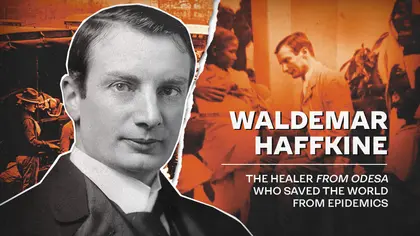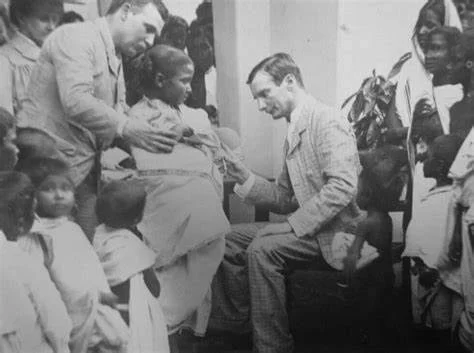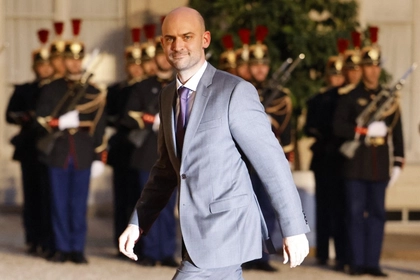WALDEMAR MORDECHAI WOLFF HAFFKINE (born Vladimir Aaronovich Khavkin in Odesa) was an epidemiologist and bacteriologist. There is a scientifi c term “limfa Havkina” or “Havkin’s lymph” named after him. He was the fi rst person in human history to create anti-cholera and anti-plague vaccines, saving the world from global catastrophes. In India, he was recognized as a national hero and is still celebrated as the “White Healer” who saved this country (and later the entire world).
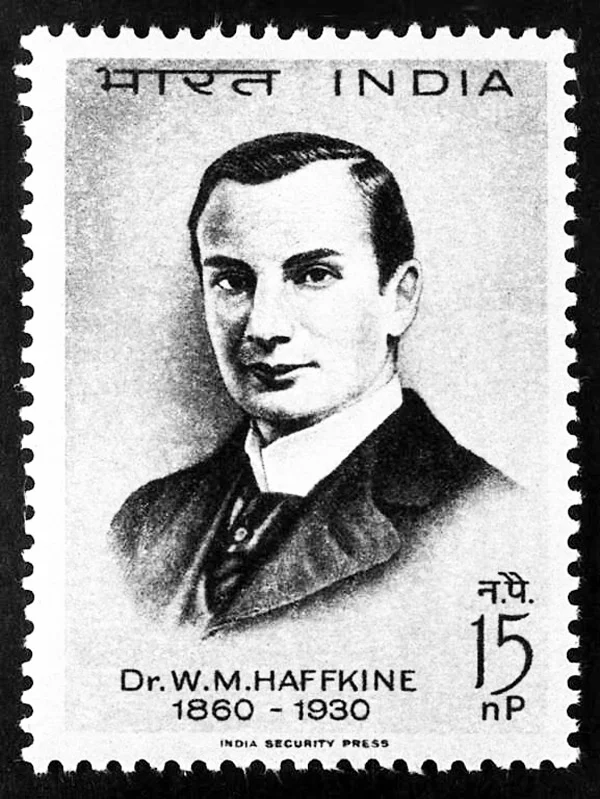
A Postage stamp commemorating Waldemar Haffkine, issued in India.
“EDUCATED EUROPEANS” AGAINST VACCINES
At the end of the 19th century, a cholera epidemic erupted in Eurasia, and subsequently India was gripped by the bubonic plague. Even the capitals of the leading countries were panicking, expecting numerous deaths. It was during this period that epidemiologist Waldemar Haffkine, who emigrated to Switzerland in 1881 and later moved to Paris, began experiments on the creation of an anti-cholera vaccine. He managed to create it while working at the Pasteur Institute in 1892.
The truth is, the Spanish biologist Ferran tried to create the same thing earlier, but his vaccinations led either to the infection of healthy people or death. Because of these failures, governments across Europe were hostile and skeptical of news about Haffkine’s success.
JOIN US ON TELEGRAM
Follow our coverage of the war on the @Kyivpost_official.
![[VIDEOS] North Korean Troops in Russia Confirmed](https://static.kyivpost.com/storage/2024/10/19/a6f6a4c5d74d066019e5812a20c6514f.png?w=420&q=75&f=webp)
[VIDEOS] North Korean Troops in Russia Confirmed
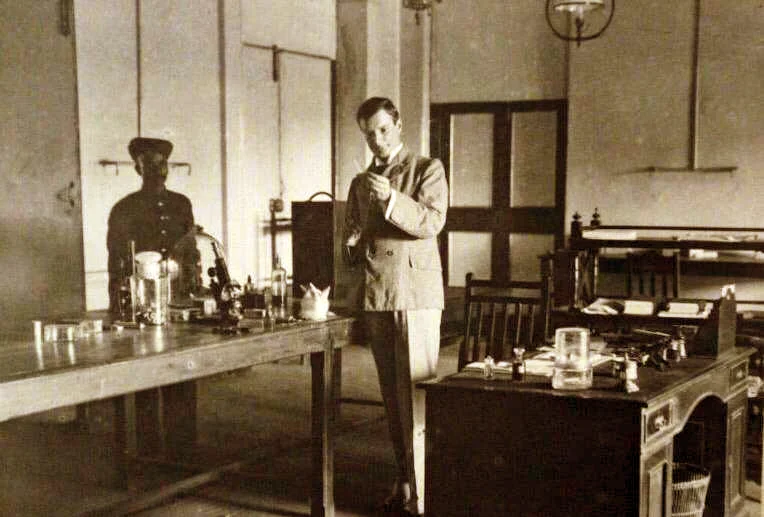 Haffkine in his laboratory.
Haffkine in his laboratory.
European countries, including Germany and France, refused to put the invention of the epidemiologist to use. The scientist even vaccinated himself to prove safety of the procedure. Unfortunately, this bold move did not change the position of powerful “enlightened Europeans”.
There was nothing left for Haffkine but to leave Europe. He went to India in 1893, where the situation was even worse: besides cholera, there was also the bubonic plague.
There were two things that made the fight against an epidemic in India more complicated:
• a lack of vaccine supplies;
• the position of the population who considered vaccination to be “remains of dead animals” (Hinduism forbids consuming them) and even a devilish approach.
Waldemar Haffkine, together with his colleagues, performs a cholera vaccination on inhabitants of Calcutta, 1894.
To convince the Indians that the vaccine was safe and would save their lives, Haffkine and his medical team used a tricky move. When they arrived in every new village to distribute the anti-cholera vaccine, an angry mob surrounded the doctors and refused to take the injections. The locals started to threaten them and threw stones. Instead of quickly retreating, Haffkine took off his jacket, unbuttoned his shirt and asked one of his colleagues to give him a shot. This demonstration made an impression and people agreed to be inoculated.
Three years later, when the city of Bombay (now called Mumbai) was on the verge of an epidemic of the bubonic plague in 1896, Haffkine also developed the first anti-plague vaccine, testing it on himself. A further fight against the disease was launched in the field. Under the sky, in tents, the much-needed fluid, called “lymph” was made: the anti-plague vaccine. As a result, over a year and a half, Haffkine personally vaccinated about 55,000 people, saving most of them from death.
THE MYSTERIOUS DISAPPEARANCES OF THE SCIENTIST
At least twice during his life, Haffkine mysteriously disappeared from public. The fi rst time was after May 1904, when he left India and arrived in London. He appeared in public only in 1907. The second time began in 1915. After retiring and returning to Europe, Haffkine disappeared again – this time for a decade.
Here is a possibly relevant detail: during the First World War, in 1917 a weapon of mass destruction was used for the fi rst time on the battlefi eld: a mustard gas. The Allied countries did everything possible to answer the “German challenge”. Now, do you know what bacteria pathogens could be used to produce bioweapons? Theyare the plague, cholera, anthrax and botulism- and Waldemar Aaronovich Haffkine had direct professional experience with two of them.
The question arises: did Haffkine, a person who did have a way with the two main candidate pathogens for possible biological weapons, disappear by accident, especially given that the scientist worked closely with the UK Ministry of Defense? Researchers are still puzzling over this conspiratorial version of the biography of the scientist.
PASTEUR’S PROPHECY
Leading scientists from world-class scientifi c institutions had an interesting reaction to the announcement of the invention of an anti-cholera vaccine by Haffkine. For example, the famous German bacteriologist Robert Koch publicly stated: “This is too wonderful to be true.” One should remember the prophetic words of the brilliant scientist Louis Pasteur, who announced on the deathbed: “One of my students will stop the plague.”
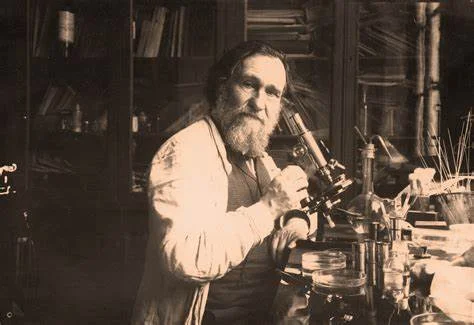
THE INSTITUTE NAMED AFTER HIM
Waldemar Haffkine made his discoveries not only at the Pasteur Institute. The bacteriology center in Mumbai, which was founded in 1899 when the governor’s residence was turned into a lab, is also named after the scientist. Now, the Haffkine Institute is the largest center of bacteriology and epidemiology in South and Southeast Asia. A monument to a scientist has also been erected in Mumbai. His bust also adorns the main building of Berdyansk State Pedagogical University (the former men’s secondary school where he studied).
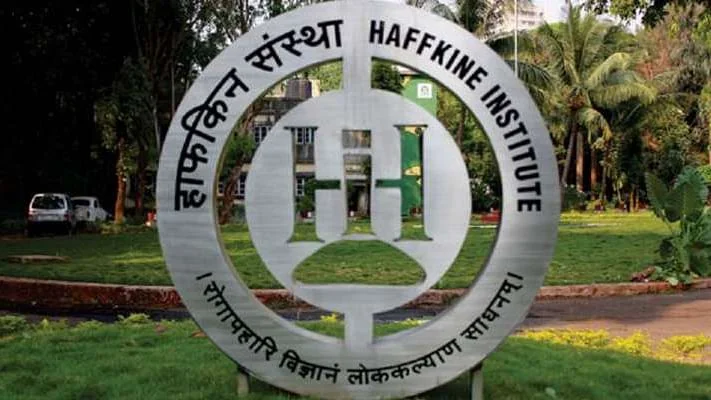
INTERESTING FACTS
- As a student, Haffkine joined the revolutionary organization “Narodna Volya” (“People’s freedom”) and was under the supervision of Russian police because of his “political unreliability”.
- Because they signed an open letter in defense of Ilya Mechnikov, Haffkine and six other students were granted “wolf tickets”: the young scientists were denied the right to hold positions in public institutions and to study at any educational institution. This became the reason for Haffkine’s emigration.
- Haffkine, working on behalf of the United Kingdom Ministry of Defense, was responsible for the vaccination of British soldiers who were sent to World War I.
- The grateful Indians called Haffkine “Mahatma”, which means “great soul.”
- The scientist spent 22 years in India. The persistent enemies of vaccination spread rumors that Haffkine was a spy, so that in some places when he arrived, people threw stones at him.
- The scientist donated all his property, as well as $ 300,000, to the creation of the Foundation for the promotion of young talent at Jewish religious schools in Eastern Europe.
- Haffkine’s huge archive is stored at the Hebrew University of Jerusalem. The archive includes his birth certificate with the signature of an Odesa rabbi, his diaries, letters, literary essays, and even reports from his home library: “This much was paid for the morning newspaper, and this was paid for milk.”
- An interesting attempt was carried out in the city of Berdyansk to name a major street there Haffkine Street. In 2016, a decision was made to rename Frunze Street after the scientist – but since the city already had a Haffkine Street, this was renamed to Mennonitska. There is also a Haffkine Street in Odesa.
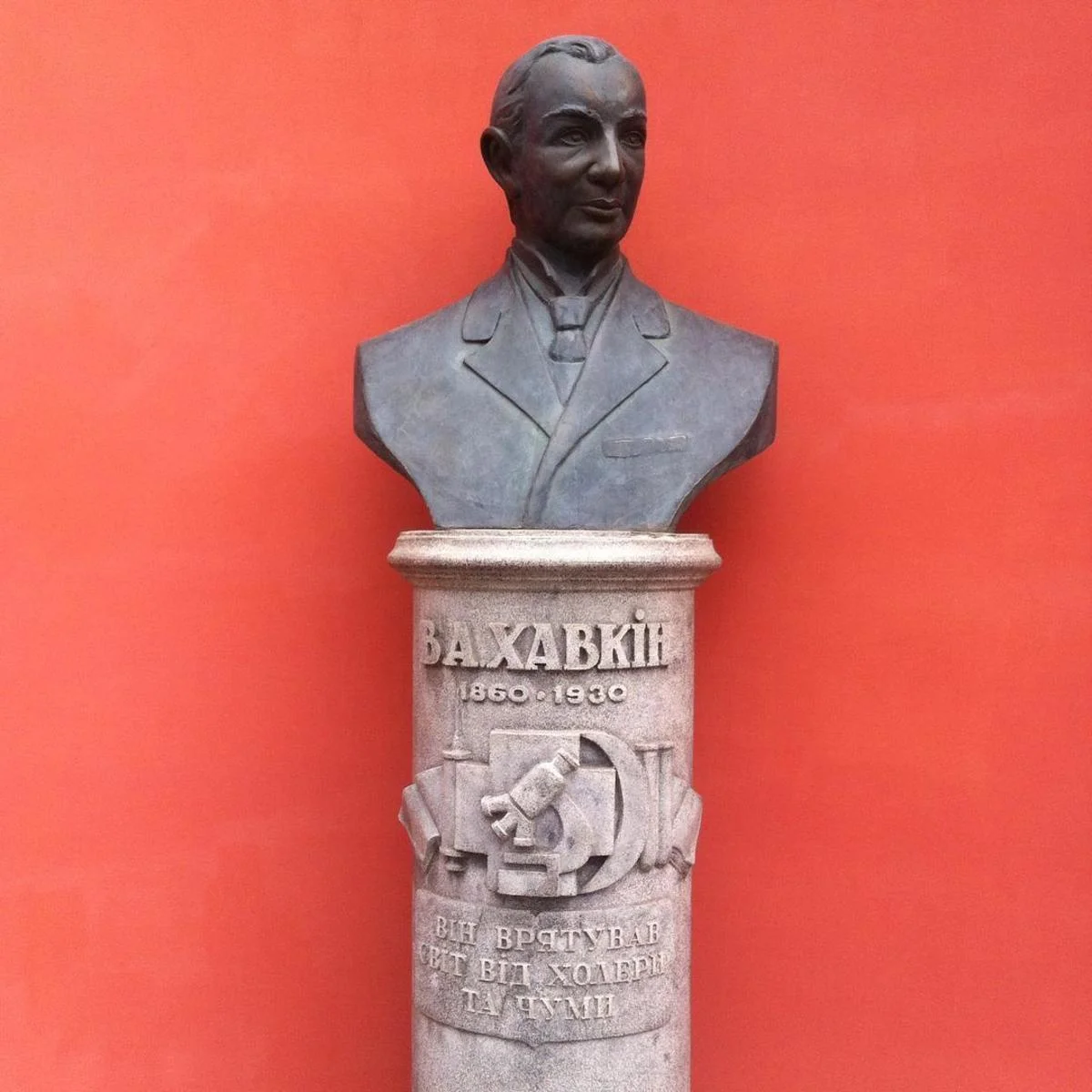
FROM THE DOSSIER OF WALDEMAR HAFFKINE
• Haffkine was born on March 15, 1860 in Odesa. He grew up in Berdyansk, where he graduated from the men’s high school.
• He studied at Odesa University. He worked at the Odesa Zoological Museum, the University of Lausanne (Switzerland), the Pasteur Institute (France), and as the Director of the Plague Laboratory in Bombay (now Mumbai, India).
• He acted as State Bacteriologist of the British Crown and the Chief Bacteriologist of the Government of India.
• He was a member of the French Society of Exotic Pathology.
• He was a laureate of the Prize in Medicine in Paris Academy of Sciences.
• He was a Companion of the British “Order of the Indian Empire”.
• He returned to Odesa in 1927 but was unable to adjust to post-revolutionary life, so a year later he moved to Lausanne, where he died on October 26, 1930, in a hotel room.
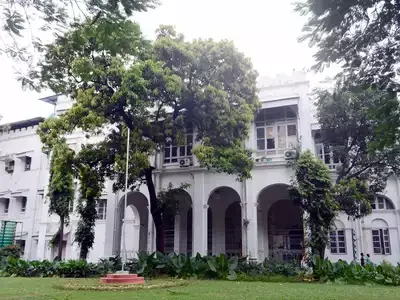 The building of the Haffkine Institute in Mumbai.
The building of the Haffkine Institute in Mumbai.
This article by Nadiia Avramchuk and Mykola Sukhomozsky is reprinted with the publisher's permission from the book (UN)Celebrated Ukrainians Who Changed the Course of History, SAMIT-KNYHA, Kyiv, 2020.
You can also highlight the text and press Ctrl + Enter


